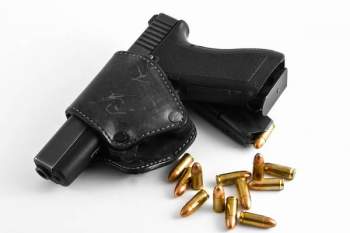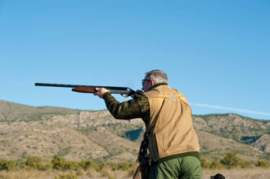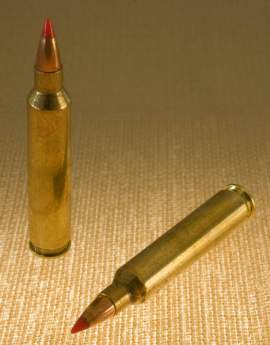
Kansas Gun Laws

Firearm laws in Kansas do not make it necessary for individuals to register their firearms. Furthermore, Kansas firearm laws do not require the acquisition of a permit in order to purchase guns. The age requirement to purchase firearms in Kentucky is eighteen. However, it is illegal to sell any kind of gun that has a barrel that is less than twelve inches to anyone under the age of eighteen.
Kansas law on firearm adheres to the common notion of not allowing the sale or transfer to any person that has been previously convicted of a felony charge. There are further restrictions imposed upon felony-related charges or convictions that are added to the initial prohibition of firearms sales to convicted felons. A ten year disqualification clause is used to further restrict the possession and purchase of firearms by felons.
The clause states that no person that has been convicted of a felony, which includes any minors convicted of a crime that, if tried as adults, would constitute a felony conviction, are prohibited from the purchase and possession of guns. Specifically, the clause is structured to target individuals with felony charges that also involved the possession of a gun.
Any person convicted of such a crime within the past ten years can not be in the possession or attempt the purchase of firearms and weapons. Other felony convictions, not involving guns, require that the individual must have not been found guilty of the charges within the pass five years, and that the charges be dismissed or pardoned.
Kansas firearm laws regarding possession require that a person be at least 18 years of age. Minors under the age of 18 may possess firearms if under the supervision of a parent, legal guardian, or qualified instructor.
A minor engaged in activities such as hunting, trapping, and competition shooting are allowed to possess firearms during the activities. This also includes the transportation of the firearm to and from the locations of such activities--including their related safety and instruction courses or classes--with the consideration that the firearm be unloaded and not in the immediate reach of the individual. Possession of firearms at the minor's place of residence is also allowed, in so far that permission is granted by a parent or guardian. Kansas firearm laws place a strict focus on situations that involve people convicted of felonies and the involvement of firearms.
The possession laws reflect the stringent policies instituted by the legislative structure in procuring or purchasing by convicted felons. These laws and regulations exist in order to prevent individuals with criminal history becoming repeat offenders, as well as address reducing and someday eliminating gun-related crimes in the state.
A firearms license is not needed to carry shotguns or rifles, but in the case of handguns, a person must apply for the appropriate license to be able to carry a concealed weapon. Generally speaking, Kansas firearm laws do not allow the open carrying of handguns. In order to be considered for eligibility by the state for a firearms license, a person must be at least 21 years old and a resident of the state for at least six months. Non-resident applicants are only eligible if they are on active duty in the military. Individuals will be considered as ineligible for a firearms license if:
The individual has been convicted of a felony.
Physically unable to handle a handgun effectively and safely.
Has shown a history or been convicted of a crime involving illegal drugs or substances and/or alcohol.
History of domestic violence.
Is not a citizen of the United States.
Currently under a restraining order.
Upon meeting the requirements, an application form is submitted to the attorney general. An applicant must also attend a safety and training, for which he/she is responsible for paying the necessary fees. Any person that has a current and valid license to carry in other states may do so in the state of Kentucky, as long as they observe the laws of stricter value of the two states. The District of Columbia is exempt from this particular regulation.
NEXT: Kentucky Gun Laws





















